| Time |
Agenda |
|
|
Making a Strategic Switch to Digital Learning and Teaching |
|
|
Digitalizing education, no doubt, will bring about drastic change in institutions’ strategies. This strategic switch requires substantial preparation in terms of budget, infrastructure, and human capital.
In order to facilitate a smooth transition for institutions, the first day of the conference aims to give educators a clear picture of how the digital transformation can be carried out. Through insight sharing from our line-up of experts, you will learn to redesign your teaching facilities and learning management system to support the new requirements of blended learning. The section will address the pressing issue of professional training, winning support from your stakeholders, and utilizing collective support from other institutions to improve teaching quality.
|
|
| 09:00 – 09:05 |
Welcoming Speech, Opening Remarks & Thank You Sponsor Speech by Conference Producer |
|
| 09:05 – 09:15 |
Conference Introduction
Highlights on Conference Day 1 Key Sessions |
|
 |
Speaker: Michael Keppell, Former Pro Vice-Chancellor Learning Transformations, Swinburne University of Technology
Chairperson |
|
| 09:15 – 10:00 |
Building Australia’s Tertiary Education Future |
|
|
- Discovering the future direction of Australia’s tertiary sector
- Strengthening Australia’s position among global competitors in time of rapid changes
|
|
 |
Speaker: Glenn Withers, Professor of Economics Australian national University and founding CEO of Universities Australia
Glenn Withers is Professor of Economics at the ANU and Chair of Blended Learning International. He is also Visiting Professor at UNSW and Tongji University in Shanghai. He was previously Chief Executive of Universities Australia, and has consulted widely for government, the community and private sectors, in Australia and overseas. Professor Withers has a Harvard PHD, and an AO for development of the Australian immigration points system. He is President of the Academy of Social Sciences in Australia. Glenn Withers’ most recent book is The Cambridge Economic History of Australia (with Simon Ville).
|
 |
| 10:00 – 10:45 |
Deakin University Case Study: Delivering Flexible Education through a Global Online Platform |
|
|
- Deakin’s journey to stay competitive in the changing tertiary world
- Reaching out to a global cohort of students with a rich and flexible learning environment
- Challenges and future directions of online degrees
|
|
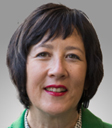 |
Speaker: Lucy Schulz, Director of the Cloud Campus, Deakin University
Lucy Schulz is Director of Deakin University’s Cloud Campus. Prior to this she was Program Director for the LIVE Agenda, Deakin University’s vision for 2020 overseeing a range of projects focused on enhancing the student experience at each stage in their journey.
Before commencing at Deakin University Lucy was Executive Director: Regulation and Review at TEQSA, the Australian regulator for higher education.
Lucy has lead numerous strategic projects including large scale business change and technology projects particularly in university administrative and service areas. She is very focused on creating value for customers – perhaps because of all those hospitality jobs when she was young. Added to this is her passion about the value and difference an education makes.
Lucy has worked in the higher education sector for a number of years in both academic and administrative positions, as well as in higher education regulation. She has a number of qualifications including in Communication Studies, Legal Studies, Education, and Management Research. She has also completed the Company Directors diploma and is a Fellow and Meritorious Service Award winner of the Association for Tertiary Education Management (ATEM).
|
![deakin-logo-Keyline[1]](http://claridenglobal.com/conference/digitalcampus2017/wp-content/uploads/sites/153/2017/03/deakin-logo-Keyline1-300x300.png) |
| 10:45 – 11:00 |
Morning Refreshments |
|
| 11:00 – 11:45 |
Beyond Blended. Digital Transformation and Innovation initiatives at James Cook University |
|
|
- Whole of institution strategy and stakeholder engagement
- The Digital Maturity Model and how to move beyond the baseline
- BLIP and BLINGs – Blended learning in practice and innovation grants
|
|
 |
Speaker: Danny Munnerley, Head of Blended Learning and Innovation, James Cook University
Danny Munnerley is the Head of Blended Learning and Innovation at James Cook University in Townsville, Australia. He has a background in Fine Arts, Design, Education and Technology and has lead many educational projects and programs within higher education and for the private sector in Australia, UAE and UK.
He is passionate about rethinking global education, creating new places to study and developing rich learning experiences that help students connect with each other online and on campus. Danny has developed approaches that blend space design and pedagogical frameworks to deliver student experiences that encourage creativity, innovation and entrepreneurial activity.
His current work is future focused and includes the design and development of learning environments suitable for students in 2020. Through a series of digital transformation projects his teams are managing a whole of university LMS migration and adoption of a new media capture and delivery systems that will provide learning experiences that works seamlessly across the physical and mobile world.
|
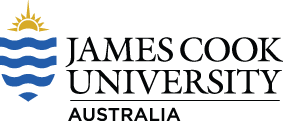 |
| 11:45 – 12:30 |
The Quest for the Most Effective Blended Teaching Methodology |
|
|
- Blended learning in technology rich environments
- Finding the balance between digital and face-to-face learning environments
- Assuring quality course design in blended learning
- Implementing effective and efficient continuous feedback on student progress
|
|
 |
Speaker: Bob Fox, Academic Lead Curriculum, University of New South Wales, Office of the Pro Vice Chancellor
Professor Bob Fox, Academic Lead Curriculum, Office of the Pro Vice-Chancellor (Education) at The University of New South Wales (UNSW), Australia. He holds concurrent appointments as Professor (Hons), Faculty of Education, University of Hong Kong (HKU) and Professor of Innovation in Higher Education (AD), School of Education, UNSW. Professor Fox was awarded HKU’s University Teaching Fellowship (UTF) for excellence in teaching. Between the year of 2000-2013, he was Associate Professor and Deputy Director, Centre for Information Technology in Education, Faculty of Education at HKU with one year at the Chinese University of Hong Kong as Professor and Associate Director, Centre for Learning Enhancement and Research before returning to HKU in 2009. He was also A/Dean (Learning Environments), Faculty of Education, HKU for the last two and a half years at HKU. Before working at HKU he was Associate Director and Senior Lecturer of the Centre for the Advancement of Education at Curtin University, Australia for 13 years; Senior Lecturer at Hong Kong Vocational Training Council for four years; a TEFL teacher for five years in England, Hong Kong and Spain and further education Lecturer for two years in England.
|
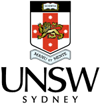 |
| 12:30 – 12:50 |
Oracle: Digital Campus Experience |
|
|
Modern education has become increasingly digital and mobile. Higher education institutions are expected to deliver an always-on, personalized learning approach for their students whether on campus or off.
Oracle has deep experience worldwide in delivering innovative industry solutions in the cloud and is ideally positioned to empower colleges and universities to create the next-generation digital campus experience that connects people, processes, things and services to help:
- Improve the campus experience with location aware, engaging mobile application experiences.
- Optimize campus operations through a connected Internet of Things integrated with systems of record.
- Promote student success by providing real time, contextual content and insight into the student’s academic life utilizing data sourced from disparate network resources.
Chanaka will be presenting and discussing some of the innovations Oracle is doing in the Higher Education sector to enable Digital Campus.
|
|
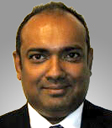 |
Speaker: Chanaka Kannangara, Director of Higher Education and Research Industry, Oracle Corporation
Chanaka Kannangara the Director of Higher Education and Research Industry at Oracle Corporation. With over 20 years in ICT industry in various senior roles ranging from R&D, Services and Management, Chanaka brings a depth of specialist knowledge aligned to current and future business needs of the rapidly changing industry landscape. He has a long involvement education and research in ANZ and US with strong senior executive relationships with Institutions and Industry bodies of the sector. Chanaka has been a trusted technology partner for many institutions for their transformational programs to address complex business issues and grow. He holds BEE and MEE (Research) degrees from Victoria University.
|
 |
| 12:50 – 13:45 |
Lunch and Networking |
|
| 13:45 – 14:25 |
Western Sydney University Case Study: Preparing Educators for Blended Pedagogies |
|
|
- Common challenges staff face when designing and employing digital teaching
- Approaches to training in blended learning for staff
- Exploring these issues through the use of a case study of preparing staff for teaching in a new, technology rich vertical campus
|
|
 |
Speaker: Denise Kirkpatrick, Deputy Vice Chancellor and Vice President (Academic), Western Sydney University
Professor Denise Kirkpatrick is Deputy Vice-Chancellor and Vice President (Academic) at Western Sydney University and is responsible for providing senior level leadership of the University’s academic portfolio, international, oversight of the Western Sydney University College and newly established Western Sydney University International College.
Denise has worked as a senior executive in universities in Australia and the United Kingdom. She has led distance education and strategy at leading distance education universities and has extensive experience leading innovation in learning and teaching, eLearning and quality assurance in distance and face to face contexts. Denise has a PhD in learning and teaching and has worked as a consultant in Australia, Europe, South-East Asia, Africa and the Middle East. She has been an international auditor for a number of Quality Assurance bodies. She researches and publishes in the fields of open, distance and e-learning, and quality in Higher Education.
|
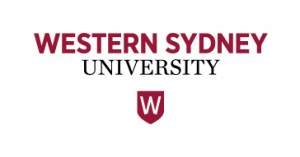 |
| 14:25 – 15:05 |
International Case Study: Blended Learning Consortium – How Colleges Partner for Higher Quality Blended Learning Delivery |
|
|
- The power of collaboration in improving availability and quality of online learning
- Driving down cost and growing educators’ expertise – a win-win solution for schools who want to advance blended learning
- Setting up knowledge sharing channels among colleges to ensure better deployment of online teaching tools
|
|
 |
Speaker: Peter Kilcoyne, ILT Director, Heart of Worcestershire College
Peter has worked in Further and Higher Education in teacher, advisor and management roles for over 30 years. He is currently Director of Information and Learning Technology at Heart of Worcestershire College. The college is a sector leading organization in Digital Learning and has recently won the Times Educational Supplement and Association of Colleges national awards for their work in this area.
Peter set up the Blended Learning Consortium 18 months ago and in this short time it has grown to over 80 colleges working together to co-fund and co-create online learning resources.
Peter also has extensive experience of working in Africa as a consultant for Computeriad International providing onsite training and support at Universities in Zambia, Nigeria, Liberia, Kenya and Ethiopia in the use of e-learning.
|
 |
| 15:05 – 15:20 |
Afternoon Refreshment & Networking |
|
| 15:20 – 16:00 |
Beyond Hype – Innovation for the Rest of Us |
|
|
Lately “innovation” seems to be the word on every tongue. Australia has its National Innovation and Research Strategy. There are global innovation forums. And in higher education, institutions are increasingly focused on innovation in research and approach to education both. But despite the ubiquity of the term, the concept and operationalization of “innovation” within the context of education remains poorly defined. What does it mean to innovate in higher education classrooms? Who is it that benefits? When and where and how is innovation useful? Does innovation require technology? In this talk I explore some of these questions, using examples from my work to challenge the often-held notion that innovation requires technology, or must be difficult or flashy in order to “count”. Instead, innovation can occur in numerous ways across all aspects of our craft: delivery, assessment, content, or materials. It can happen at the level of an individual lesson, a unit, a course or an institution. Technology can help, but isn’t all that’s necessary. Far more important is an open mind and willingness to explore and take a chance in order to improve engagement and student learning outcomes. |
|
 |
Speaker: Teri Balser, Dean of Teaching and Learning, Curtin University
Professor Teri Balser is Dean of Teaching and Learning for the Faculty of Science and Engineering at Curtin University. Prior to her arrival in Australia, her career has taken her from a Ph.D. in soil microbiology from the University of California at Berkeley, to postdoctoral research in ecosystem ecology at Stanford University, to being a Faculty member at the University of Wisconsin Madison, and finally Dean of the College of Agricultural and Life Sciences at the University of Florida.
Professor Balser has an international recognition as an accomplished research scholar, and is also widely known in higher education as a change agent and leader in STEM. She is a co-founder of the Society for Advancement of Biology Education Research (SABER), a National Vision and Change Fellow with the Partnership for Undergraduate Life Sciences Education (PULSE), and was a Fulbright-Nehru Distinguished Chair to India in 2015 to help build capacity at the national level for pedagogically advanced and responsive STEM education. She has long been an active advocate, speaker, and workshop facilitator for leadership and gender equity across the sciences and engineering.
|
 |
| 16:00 – 16:40 |
Assessing the Success of Your New Blended Learning Strategy |
|
|
- Strategy for creating effective MOOC and face-to-face sessions
- Gathering and analyzing data to determine the pedagogies’ short-term and long-term success
- Assessment of online collaborative learning system
- Connecting online and offline workshops
|
|
 |
Speaker: Kayoko Kurita, Associate Professor, Center for Research and Development of Higher Education, University of Tokyo
Dr. Kayoko Kurita is an Associate Professor at Center of Research and Development in Higher Education, The University of Tokyo (UTokyo). She is a board member of Japan Association of Educational Development (JAED), a delegate of Japan Association for College and University Education. She has devoted much of her professional career to research at the quality assurance of higher education and to engage in developing and implementing a variety of programs for Educational Development and Graduate Students for Professional Development (GSPD) like a workshop for creating Teaching Portfolios. She has been in charge of “UTokyo Future Faculty Program” for graduate students and faculty; which has earned good reputation as a GSPD program in Japan. Additionally, she provided a MOOC titled “Interactive Teaching” for all educators. Now she is pursuing sustainable learning community for online or face to face course setting. |
-300x50.jpg) |
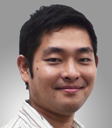 |
Speaker: Lui Yoshida, Educational developer; Project Assistant Professor of the Division for Active Learning and Teaching, Komaba Organization for Educational Excellence; University of Tokyo
Dr. Lui Yoshida is an educational developer and a Project Assistant Professor of the Division for Active Learning and Teaching at Komaba Organization for Educational Excellence (KOMEX) at The University of Tokyo (UTokyo). Before joining KOMEX, he researched in Biomedical engineering and got his Ph.D in Science at UTokyo and he was engaged in a graduate student professional development program called “UTokyo Future Faculty Program” at the Center for Research and Development for Higher Education at the UTokyo. Now, he is engaged in promoting effective active learning on the campus and holds educational development workshops and class consultation service at UTokyo. Addition to the work at UTokyo, as his research, he developed online collaborative learning system “LearnWiz” to provide wide opportunities for faculty members to improve teaching skills. |
-300x50.jpg) |
| 16:40 – 16:45 |
Closing Remarks by Conference Chairman |
|
| 16:45 |
Champagne Networking Session |
|
|
Enjoy a glass of champagne whilst networking with other like-minded individuals on topics that are of most interest to you and fellow delegates. |
|